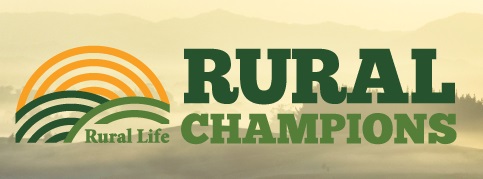 Kathryn Wright’s career is now focused on rural mental health. PHOTO: MG PHOTOGRAPHY
Kathryn Wright’s career is now focused on rural mental health. PHOTO: MG PHOTOGRAPHY

My utopian view for the farming sector.
This is probably the hardest question for me to answer. My role is to support rural people and those who work in the agricultural sector, so I write this with my family and with other rural families in mind.

What makes a good rural community?
Throughout the years, small communities were kinship groups where everyone was related to or knew each other. Traditionally in farming, even in New Zealand not so long ago, groups of farmers would pool their resources and time to help with baleage, tailing, weaning and drenching et cetera at each other’s farms. Unfortunately, this doesn’t happen much any more, mostly due to the transient nature of some farming practices, and a focus away from collective communities and on to individualism — it has become highly prized in Western cultures to be individual and self-reliant. It was a great way to get work done, but the biggest benefit of that system was that people formed friendships and support networks. Strong personal relationships are the strongest predictor for good mental health and wellbeing, especially in small rural communities where human contact can be quite minimal, so those few relationships matter a lot.
Communities that hold events or create initiatives that uphold any of the main ways of wellbeing are great communities. That includes anything that fosters friendships/relationships, gets people moving their bodies, allows people the chance to give back through volunteering time or knowledge, or helps people to learn new skills through interest groups or education. Small rural communities often lack social/health services and other initiatives that urban centres can easily access. But healthy, resourceful communities are creative communities.
I have seen some amazing initiatives rise from the smallest communities when needed — a person with existing expertise on a pressing issue emerges from the community, someone starting a fundraising project for something that is important for that community or being able to raise awareness of some kind of problem or if someone is in need of support. Just think about when someone suffers some kind of tragedy or illness in a small community — there is no need to cook for weeks, and there is a steady procession of visitors, support people, help on the farm or whatever is needed. I’m not sure this would happen as much in a city. That is community.
Advice for my younger self?
Your location is not a barrier to seeking education and self-improvement.
Your ability to listen, empathise and relate to others is your superpower.
Not everything needs to finished or fixed right now — slow down, good things take time.
You don’t need to fit neatly into a single box — there are many parts to all of us.
Not everyone will like you or agree with you.
Follow your values, made up from goals along the way — do what you love.
— Kathryn Wright, Rural mental health counsellor and researcher, Te Anau











